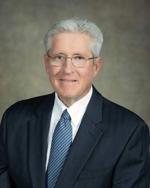A Nebraska state senator is seeking to curb minors' access to online pornography through a new law that would require users to verify their age.
Sen. Dave Murman said his bill (LB1092) would protect children by prohibiting adult websites from showing pornographic content to users unless they first submitted identification showing they were over the age of 18.

Murman
��
"While it is currently federally illegal to show children pornography, it is rarely enforced," Murman told the Judiciary Committee on Wednesday. "Instead, the online pornography industry virtually has free rein to distribute content to children."
The Glenvil lawmaker said the bill requires adult websites or third-party companies contracted by them to provide verification while not retaining any personal information, and gives individuals, parents or guardians a right to sue adult websites that do not comply with the state law.
People are also reading…
He called it "common sense" legislation that has been signed into law in a growing number of states across the country, as lawmakers seek to put barriers around "a porn industry many have considered impossible to regulate."
Murman, who designated LB1092 his priority bill this session, said it was modeled from a measure enacted in Louisiana in 2022 requiring adult content websites to verify users are over the age of 18.
Similar bills also have been passed in Arkansas, Mississippi, Montana, North Carolina, Texas, Utah and Virginia in the past year, which led Pornhub and other similar sites to block users from several states.
Along with Nebraska, Indiana, Iowa and North Dakota are considering legislation this year requiring users to show their age before they can access pornographic sites online.
Opponents of those laws argue the ways state legislatures have implemented age verification are ineffective because they push users to sites that do not follow the law and are dangerous because they collect significant amounts of personal information.
After Utah's law went into effect in 2023, for example, searches for "virtual private networks," or VPNs that allow users to get around the law, ultimately skyrocketed, according to trends recorded by Google at the time.
The laws also have drawn legal challenges in multiple states from the Free Speech Coalition, a trade association for the adult entertainment industry, which argues they are unconstitutional because they restrict free speech by not allowing access unless a user submits personal data.
In Texas, a federal judge ruled the law likely violated the First Amendment last year and issued an injunction against the state enforcing it, but a three-judge panel on the Fifth Circuit Court of Appeals later vacated the injunction.
A lawsuit against Utah's law was dismissed on technical grounds but refiled in January.
On Wednesday, national and local organizations that advocate for religious and family values said limiting the availability of pornographic material to minors would improve mental and emotional well-being, and help young people in their physical and social development.
Joseph Kohm, the director of public policy for Family Policy Alliance, an offshoot of the Christian ministry-based Focus on the Family, said a growing number of Americans were being exposed to pornography at earlier ages, including some as young as 7 years old.
Responding to a question from Sen. Carol Blood of Bellevue, who asked why legislation was necessary for parents and guardians to exercise their rights to control what their children had access to, Kohm said the bill gave parents another tool to make decisions for their children.
"This is not giving guidance to parents," Kohm said. "It is simply making sure parents are the ones to expose their children to any loss of their sexual innocence."
The Institute for Family Studies, a Virginia-based nonprofit that has advocated for similar legislation in other states, also testified in support of LB1092, calling it a bipartisan measure to address a problem an overwhelming majority of parents see as a problem.
Michael Toscano, the organization's executive director, said a 2020 poll done in conjunction with YouGov found 86% of parents believe it was too easy for children to access pornography online.
"The porn industry argues that free speech requires that American adults get their porn without delay, no matter the effect on little kids," Toscano said. "But the porn industry is not about speech, it's about money."
Citing statements made to CNN by a spokesperson for Pornhub, Toscano said Louisiana's age verification law resulted in a drop of 80% of traffic to the website from users in that state, though he said not all of those would be minors.
Murman's bill also was backed by the Nebraska Family Alliance, which called it an "opportunity to provide a minimal level of protection for children in the digital age," as well as the Nebraska Catholic Conference, the lobbying arm of the church.
Speaking against the bill were a pair of free speech and civil rights groups, which argued it could be used to stifle other content on the internet or would violate the rights and privacy of Nebraskans.
Korby Gilbertson, a lobbyist for Media of Nebraska, said "protecting children from pornography is important," but that LB1092 was too broad in the types of content it sought to require age verification to view.
"In our opinion, this is not narrowly tailored," Gilbertson said. "We think it opens up the state to immediate challenges, constitutionally, if this would pass."
And Jane Seu, a policy and legal advisor for the ACLU of Nebraska, said the age verification law included in LB1092 would have a chilling effect on free speech because it had "vague and amorphous" language that made it unclear when the restrictions would apply.
It also violated the privacy and anonymity of internet users who were breaking no laws by requiring them to prove their age to visit certain websites, she said.
"Courts have found these policies are unconstitutional because there are less restrictive means to advance interests of internet safety without placing blanket burdens on all users and exposing their private information and identities," Seu said.
The committee did not take any action on the bill Wednesday, Day 31 of the 60-day legislative session. Committee hearings are scheduled to continue through the end of February.
Sen. Barry DeKay of Niobrara, a member of the Judiciary Committee, signaled his support for advancing the bill, however.
"It may not be a fix-all, but it takes us a lot farther down the road," he said.
LPS to end debt collection policy; Lied to have biggest Broadway year; sophomore swimmer making splash
Meet the Nebraska state senators making laws in 2024

District 35
Raymond Aguilar
Grand Island
Elected 2020
402-471-2617

District 17
Joni Albrecht
Thurston
Elected 2016, 2020
402-471-2716

District 14
John Arch
La Vista
Elected 2018, 2022
402-471-2730

District 18
Christy Armendariz
Omaha
Elected 2022
402-471-2618

District 21
Beau Ballard
Lincoln
Appointed 2023
402-471-2673

District 3
Carol Blood
Bellevue
Elected 2016, 2020
402-471-2627

District 25
Carolyn Bosn
Lincoln
Appointed 2023
402-471-2731

District 29
Eliot Bostar
Lincoln
Elected 2020
402-471-2734

District 23
Bruce Bostelman
Brainard
Elected 2016, 2020
402-471-2719

District 32
Tom Brandt
Plymouth
Elected 2018, 2022
402-471-2711

District 43
Tom Brewer
Gordon
Elected 2016, 2020
402-471-2628

District 9
John Cavanaugh
Omaha
Elected 2020
402-471-2723

District 6
Machaela Cavanaugh
Omaha
Elected 2018, 2022
402-471-2714

District 2
Robert Clements
Elmwood
Appt. 2017, elected 2018, 2022
402-471-2613

District 46
Danielle Conrad
Lincoln
Elected 2022
402-471-2720

District 49
Jen Day
Omaha
Elected 2020
402-471-2725

District 10
Wendy DeBoer
Bennington
Elected 2018, 2022
402-471-2718

District 40
Barry DeKay
Niobrara
Elected 2022
402-471-2801

District 30
Myron Dorn
Adams
Elected 2018, 2022
402-471-2620

District 19
Robert Dover
Norfolk
Appointed 2022
402-471-2929

District 26
George Dungan
Lincoln
Elected 2022
402-471-2610

District 47
Steve Erdman
Bayard
Elected 2016, 2020
402-471-2616

District 20
John Fredrickson
Omaha
Elected 2022
402-471-2622

District 33
Steve Halloran
Hastings
Elected 2016, 2020
402-471-2712

District 16
Ben Hansen
Blair
Elected 2018, 2022
402-471-2728

District 48
Brian Hardin
Gering
Elected 2022
402-471-2802

District 36
Rick Holdcroft
Bellevue
Elected 2022
402-471-2642

District 24
Jana Hughes
Seward
Elected 2022
402-471-2756

District 8
Megan Hunt
Omaha
Elected 2018, 2022
402-471-2722

District 44
Teresa Ibach
Sumner
Elected 2022
402-471-2805

District 42
Mike Jacobson
North Platte
Appt. 2022, elected 2022
402-471-2729

District 31
Kathleen Kauth
Omaha
Appt. 2022, elected 2022
402-471-2327

District 39
Lou Ann Linehan
Elkhorn
Elected 2016, 2020
402-471-2885

District 34
Loren Lippincott
Central City
Elected 2022
402-471-2630

District 37
John Lowe
Kearney
Elected 2016, 2020
402-471-2726

District 5
Mike McDonnell
Omaha
Elected 2016, 2020
402-471-2710

District 11
Terrell McKinney
Omaha
Elected 2020
402-471-2612

District 41
Fred Meyer
St. Paul
Appointed 2023
402-471-2631

District 22
Mike Moser
Columbus
Elected 2018, 2022
402-471-2715

District 38
Dave Murman
Glenvil
Elected 2018, 2022
402-471-2732

District 28
Jane Raybould
Lincoln
Elected 2022
402-471-2633

District 12
Merv Riepe
Ralston
Elected 2022
402-471-2623

District 45
Rita Sanders
Bellevue
Elected 2020
402-471-2615

District 1
Julie Slama
Sterling
Appt. 2019, Elected 2020
402-471-2733

Democrat (blue)
District 7
Tony Vargas
Omaha
Elected 2016, 2020
402-471-2721

District 4
R. Brad von Gillern
Elkhorn
Elected 2022
402-471-2621

District 15
Lynne Walz
Fremont
Elected 2016, 2020
402-471-2625

District 13
Justin Wayne
Omaha
Elected 2016, 2020
402-471-2727

District 27
Anna Wishart
Lincoln
Elected 2016, 2020
402-471-2632

















